

James Wong
6 Days Ago
Atko takes Audi's compact Nurburgring record holder onto Queensland Raceway to see if it's quicker than the Mercedes-AMG A45 S.
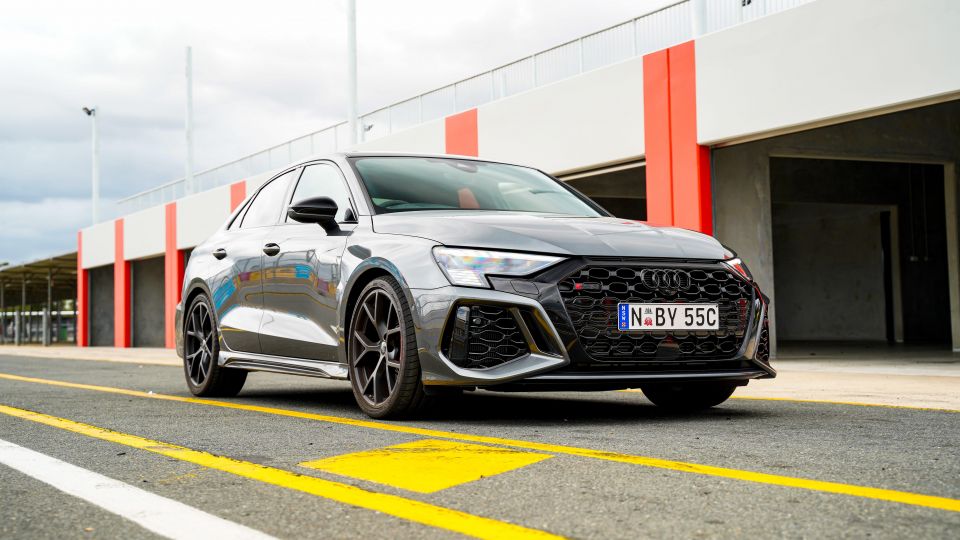
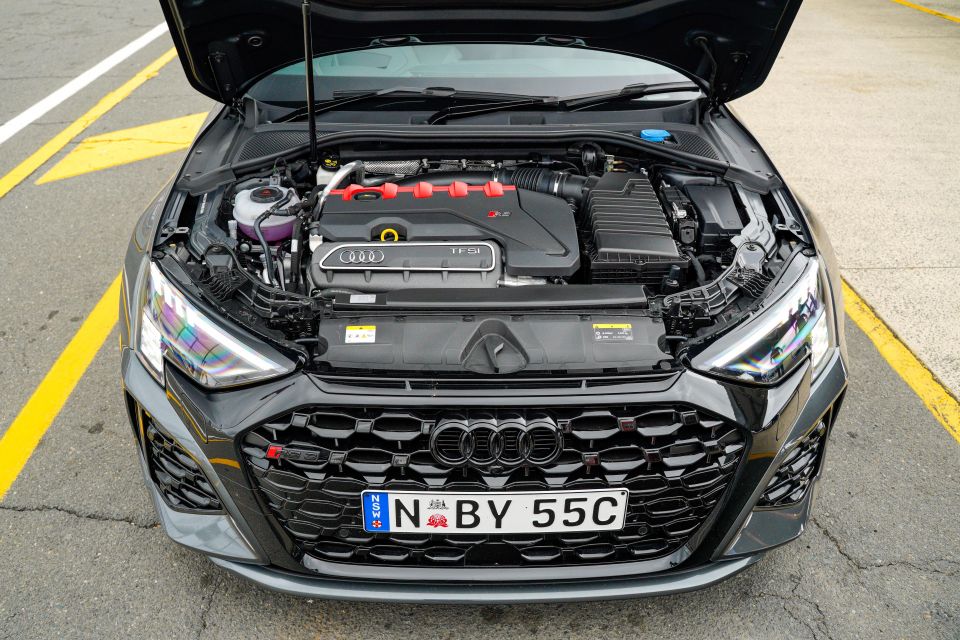

Quickly see how this car stacks up against its competition. Select any benchmark to see more details.
Take advantage of Australia's BIGGEST new car website to find a great deal on a Audi RS3.
From the first corner in the Audi RS3 Sedan you feel at home and able to attack, it offers confidence inspiring feedback with a rally-style dynamic. Straight away this latest version felt more complete, more balanced and extremely quick.
The RS3 offers a great balance between everyday driveability and on track potential at the flick of a switch. You don’t feel like you are living on the edge, but you know that the speed is there if needed.
For 2022 you can tell Audi had the Mercedes-AMG A45 S firmly in its sights, with a claimed 0-100km/h time 0.1 seconds faster than the AMG and a host of other subtle improvements.
But will this be enough to close the gap, and maybe even jump ahead of the A45 S? First impression was that it’s going to be close…

On paper the 2.5-litre turbocharged inline five-cylinder petrol engine has barely changed, with an identical 294kW of power as its predecessor, and a slight increase in torque to 500Nm –which comes in 300rpm higher at 2250 rpm. Instantly it felt more reactive and responsive, offering a broader more flexible power band.
It was more driveable on track and offered more room for error with gear selection and car positioning, whilst still maintaining vehicle speed.
Somehow, Audi have managed to extract even more out of the already impressive launch control system, with a claimed 0-100 time of 3.8 seconds.
On my first run I did 3.89 seconds followed by a 3.90s run, which was 0.34 seconds quicker than what I achieved in the previous-generation model.
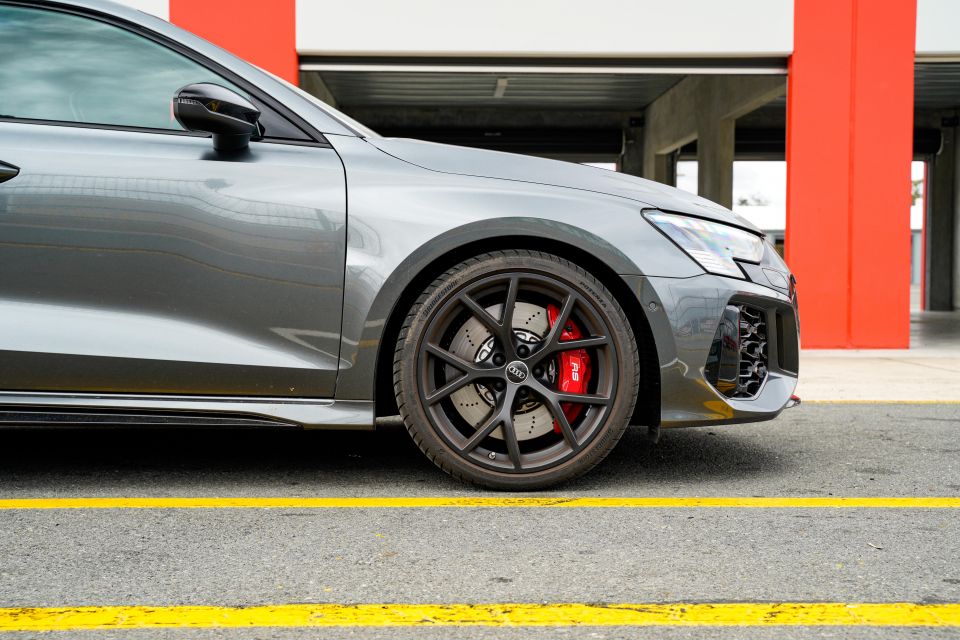
The brake pedal was really solid and consistent, but just lacked the outright stopping power that I remembered from the previous version.
My first thought was the brake package, but I soon came to realise that it was more grip related, which I will get to shortly.
Brake pedal modulation has improved, and I was able to do much more consistent laps than in the outgoing model
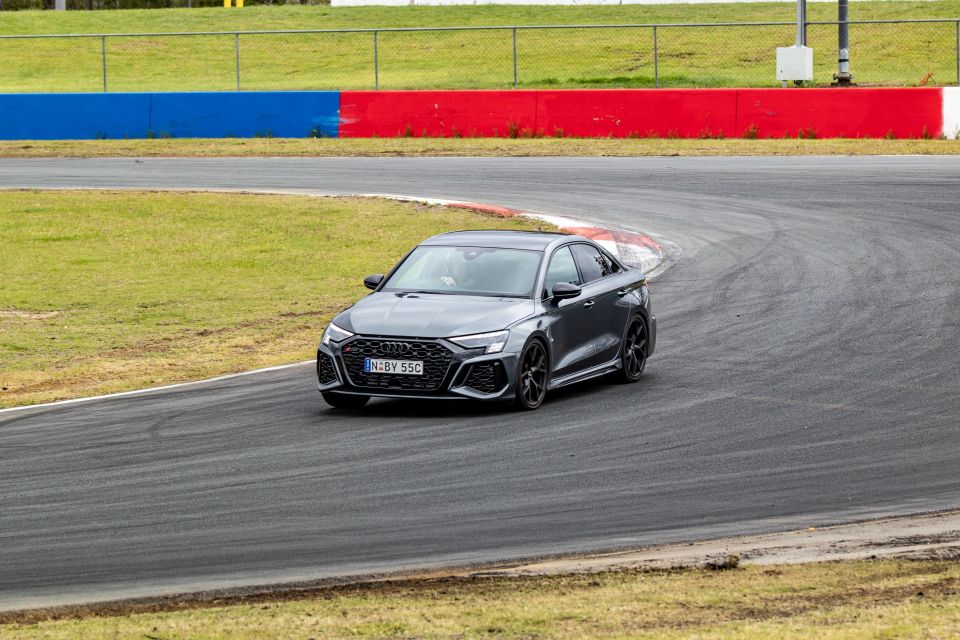
The chassis is very close to being ideal, but just slightly compromised in a few areas.
It is great to have the movement in the chassis, but as soon as you start to explore the limits, it shows signs that it’s not quite there. The front end appears to be the weakness with a bit too much roll in both high- and low-speed corners, which creates a delayed, subtle understeer.
It won’t wash out into a large understeer but lacks the response and support to really carry corner speed. The great part is that if you are patient enough, you can now rotate the car out of this understeer using the improved differentials, rather than just carrying on and managing the understeer.
Once you get that rotation started, you can really drive off the middle of the corner and rely on the traction of the quattro all-wheel drive system – which now has a rear torque splitter – to fire you forward.
For the majority of drivers and for road use, the slight understeer balance is a benefit and something that will inspire confidence behind the wheel. There wouldn’t be many people that couldn’t hop behind the wheel of this car and do some of the best laps they have ever done.
From my past experience, the RS3 Sedan has more of an understeer bias than the Sportback (hatch) with its more supportive and stable rear end – likely a contributing factor to this balance issue I experienced.
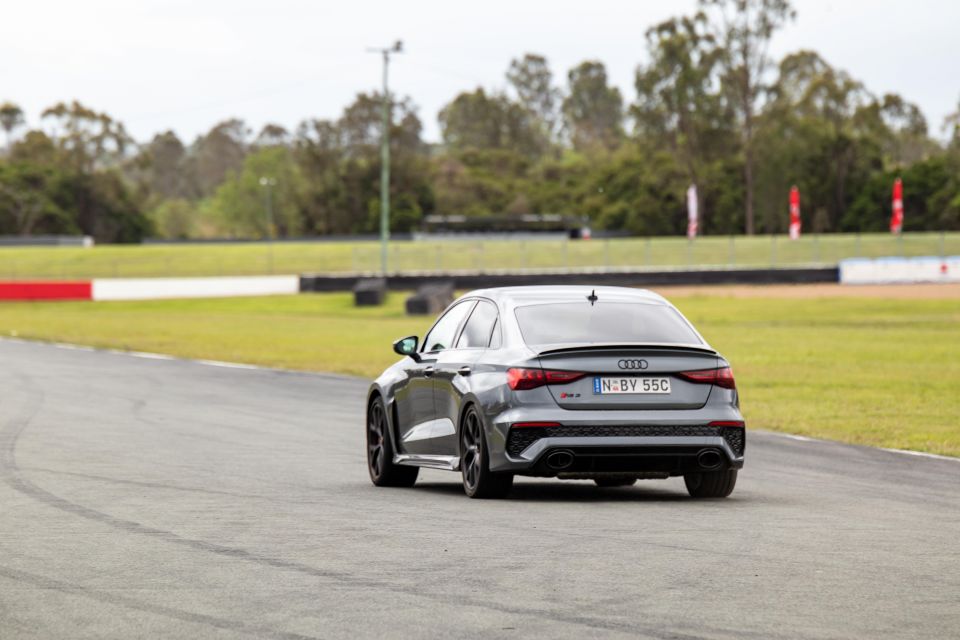
The seven-speed S tronic dual-clutch auto transmission appeared to be more forgiving on downshifts, and I had no issues at all.
I found the latest shifter to be a definite improvement; if only software wise, over the outgoing model. Upshifts were excellent, fast and efficient, which is a big part of nailing that 0-100km/h time.
With the differentials, it is exciting to see Audi drop the Haldex system, which had a tendency towards understeer, in favour of a mechanical rear differential with independent electronically-controlled clutches distributing torque between the rear wheels.
This gave a much more neutral balance on throttle, with the ability to even rotate the car on early throttle before brining everything together on corner exit. I liked how well the differentials pulled everything straight when you stepped on the power and I could carry a lot of speed off each corner with confidence that it would hold the line, which is a huge improvement.
From a sheer experience point of view, this is so much more satisfying for the driver and great to see that Audi have recognised this and moved on. Traction was excellent, as you would expect.
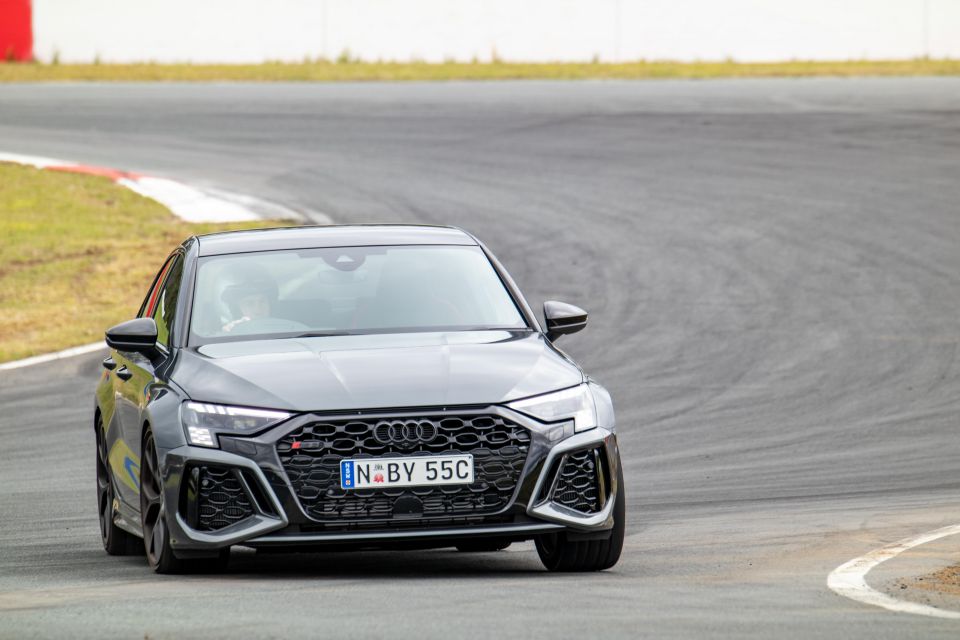
The Audi RS3 is slightly limited on the track with the amount of movement it has.
I hadn’t noticed this as a big issue previously, but I felt with all the other small improvements with the Audi RS3, that they could have got a bit more out of the suspension.
Despite this, the suspension travel and compliance is excellent and it isn’t harsh on either the road or track.
The level of grip and compliance means you can really chuck the car around and use all of the track with confidence.
I was impressed with the steering again, offering good feedback and connection with the chassis.
It never crossed my mind and was just as I would expect, which isn’t a bad thing.
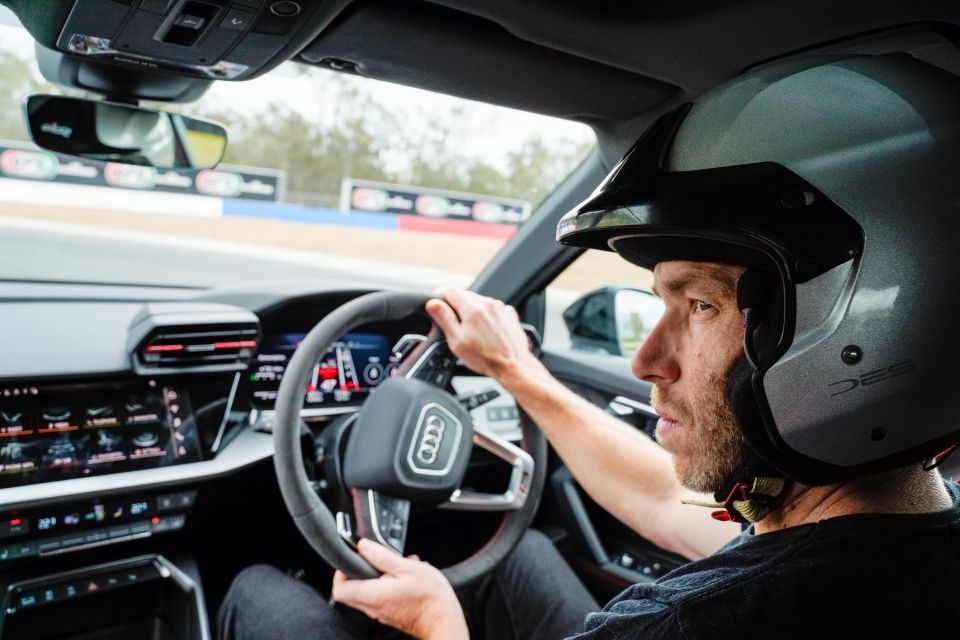
Whenever you do your fastest lap on your first lap, it is usually a sign that the tyres are not up to the task.
On our test car, Audi fitted Bridgestone Potenza Sport rubber with slightly wider 265/30 R19 up front and 245/35 R19 at the rear. Overseas Pirelli P Zero and track-focused Trofeo R tyres are available.
Audi has stuck with the staggered setup to improve front grip, but there still appeared to be a limitation there. I reset the tyre pressures for my second run and was able to almost match my first time, then the time dropped straight off again with an increase in understeer.
There seemed to be both a compound issue and pressure issue, with mechanical grip missing with possibly too hard a compound and then that energy increasing the tyre pressure rapidly, and I never felt like it hooked up.
Worth noting is when the RS3 Sedan set the compact car lap record around the Nürburgring, Audi fitted the vehicle with the stickier Pirelli P Zero Trofeo R tyres. I would love to try this car on a proper set of performance tyres and see how it behaves on track.
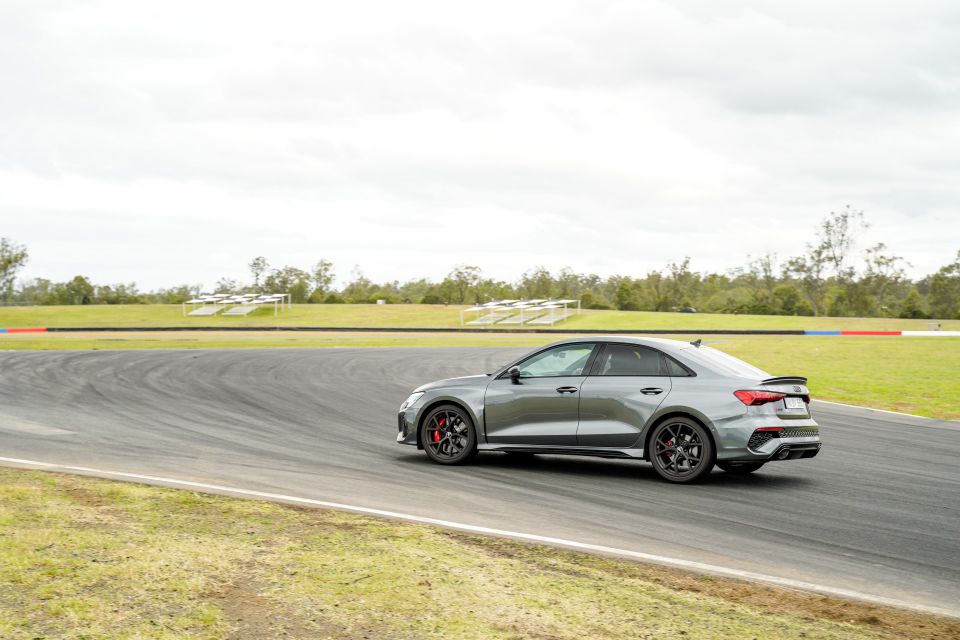
Audi has improved its driver aids with more options and customisable RS drive modes.
I found with everything in RS performance mode and the ESC in its Dynamic setting, there was not as much interference as the previous generation.
I did switch off the traction control and was not concerned at all with the level of traction and driveability the Audi RS3 had on track.
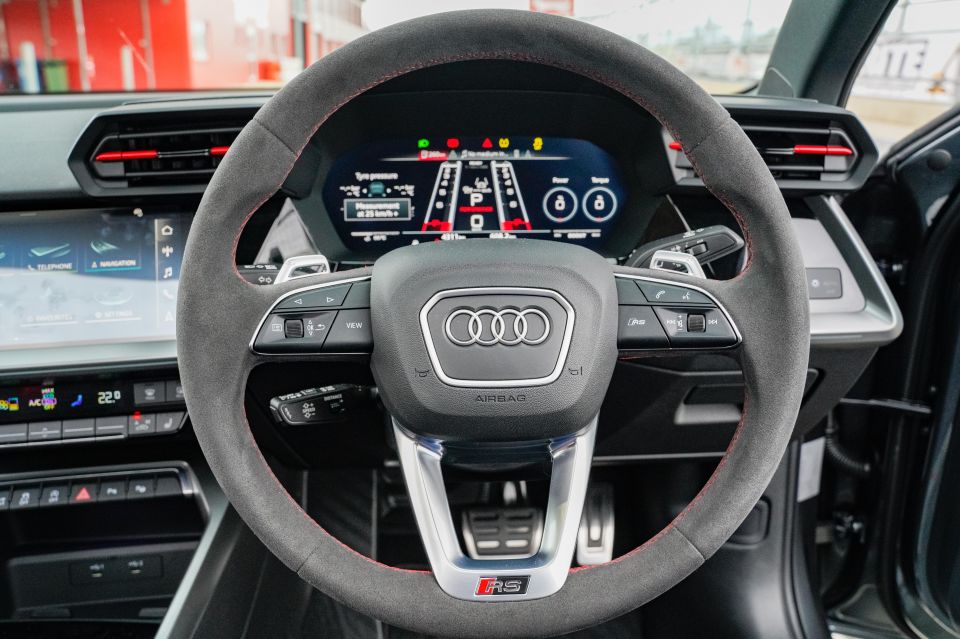
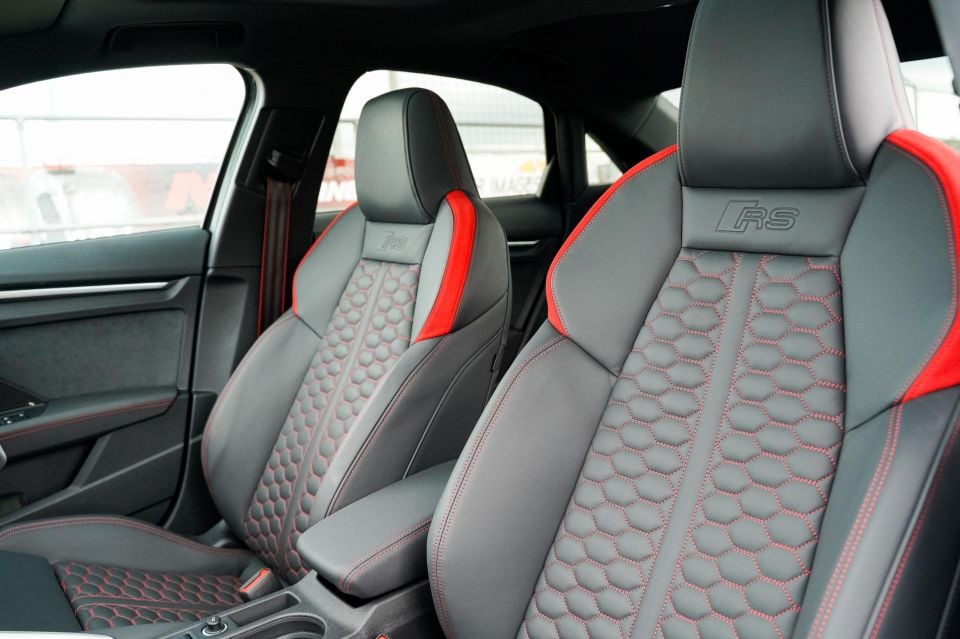
I really like Audi steering wheels, they’re a nice size, shape and texture with the optional Alcantara finish – which is great for track use and perfect on the road as well.
Bringing the RS button onto the wheel is a great addition and makes it so easy to jump into race mode with the flick of your thumb. The seats and their positioning are also very nice and offer enough support on track as well as everyday comfort.
The new runway rpm gauge actually took a while to get used to. I found it strange to have the revs moving towards me as I was heading forward. The integration with the shift lights is very nice and you would definitely get used to it the whole display.

In my head, the Audi RS3 had done everything to match the Mercedes-AMG A45 S in terms of lap time – the engine felt better, the differentials did what I wanted and I could attack fully, but the lap time just wasn’t there.
It couldn’t even match the previous-gen Audi RS3 on our test track, which confused me even more.
As a package it felt more complete, more satisfying to drive and such an enjoyable and entertaining experience, yet it did a 59.21-second lap – 0.3 seconds slower than the old model and 1.0 second behind the AMG.
Tracks do change day to day and tyres can play a critical role, but this time I can say is that lap time isn’t everything and you won’t be disappointed behind the wheel of an Audi RS3.
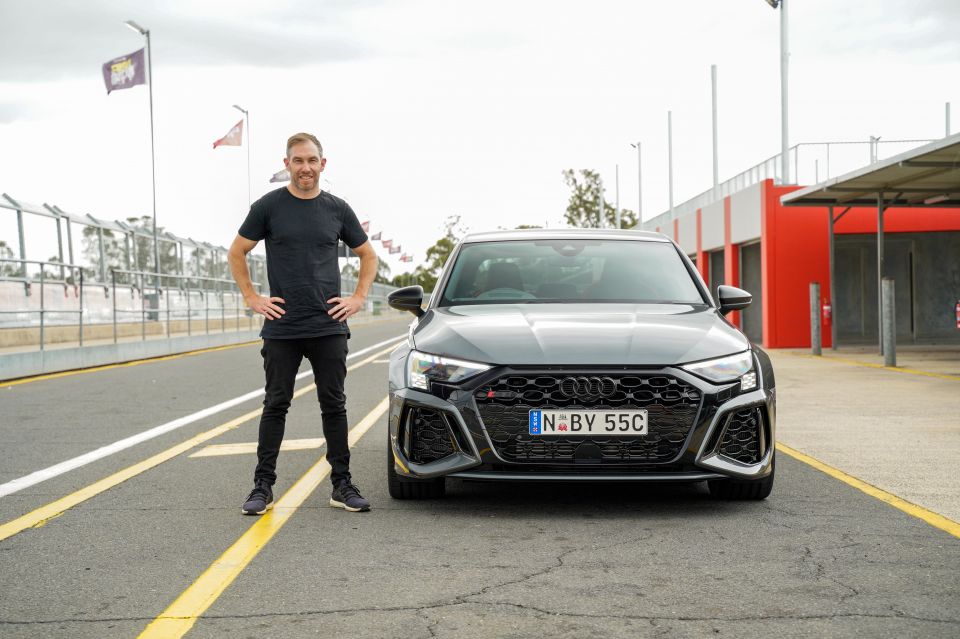
Click the images for the full gallery
MORE: Everything Audi RS3
Take advantage of Australia's BIGGEST new car website to find a great deal on a Audi RS3.


James Wong
6 Days Ago
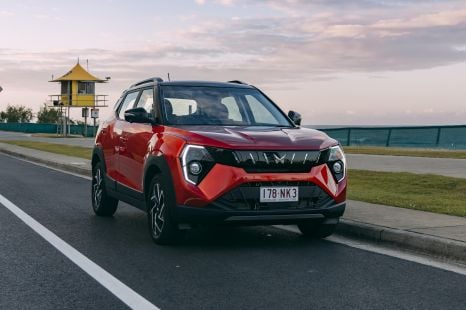

Damion Smy
4 Days Ago
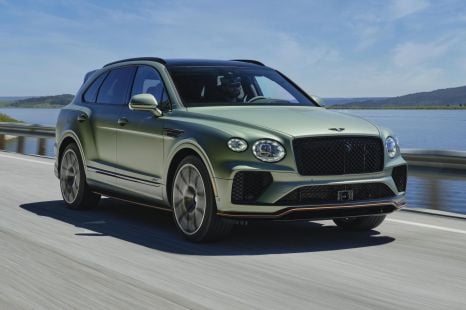

Paul Maric
4 Days Ago
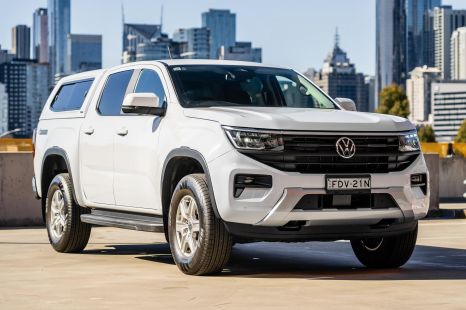

Max Davies
3 Days Ago
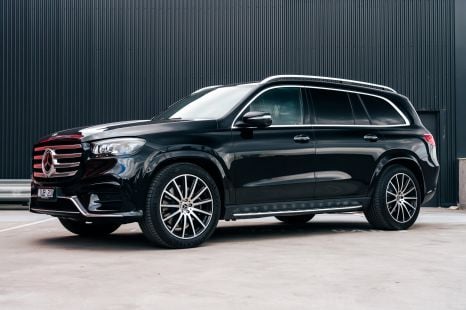

James Wong
2 Days Ago


Matt Campbell
1 Day Ago